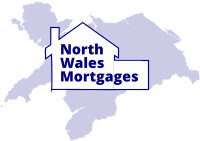When is the best time to remortgage?
Remortgaging means getting a new mortgage with a different lender but not selling your house, just changing the mortgage, what else do you need to know?

By Nick Partington
You can remortgage at any time but there’s no point doing it just for the sake of switching to a different lender. You want to choose a time when there is a definite advantage in moving mortgages.
This may be when
- interest rates are lower than you’re paying at the moment
- you’ve come to the end of a fixed rate mortgage deal
- you have increased the equity in your home
You can switch mortgages when it suits you, you do not have to stay with the same lender for the entire term of the mortgage.
When interest rates are low
Interest rates are always changing, if you’ve had your mortgage for a few years, you’ll probably find there are cheaper rates available, this can save you a lot of money.
You can lock in to a low interest rate with a fixed rate mortgage and know that your repayments will stay the same for the next few years, whatever happens to other rates.
You need to make sure that you are not tied in to an existing fixed rate product and have to pay an early repayment charge for switching before the end of the deal
At the end of your fixed term mortgage
Fixed rate mortgages run for a set term, typically between 2 and 10 years, you then go onto a new rate, usually the lender’s Standard Variable Rate of interest (SVR) which is likely to be higher than your current rate. If you have a fixed rate mortgage at the moment, then you will need to change your mortgage if you don’t want to go you’re your landers standard variable rate.
Even if the interest is the same as you’ve been paying, or higher or lower, depending on what is happening to interest rates at the time, you do not have to stay with the same lender, you should shop around to see what is on offer.
If you want to remortgage before your fixed rate comes to an end, you’ll probably have to pay early repayment charges. Usually this isn’t worth paying but you should consider it if interest rates have dropped since you took out your fixed rate mortgage and you are worried about future interest rate rises.
When the equity in your house has increased
The equity in your house is the difference between what you r house is worth and the outstanding balance on your mortgage.
The ratio of the equity to the mortgage is known as the Loan to Value (LTV). If the price of your house has gone up, your mortgage will be a smaller percentage of the property’s value than it was when you started.
The more equity you own and the lower the loan to value will be and the better the remortgage deal you can get.
The loan to value may have been 90% when you bought the house but over the years you have paid some off the mortgage and the house has gone up in value. As a result, the loan to value may now be down to 75%, you may be able to get a lower rate of interest simply as a result of the improved loan to value.
Obviously, there is no point in remortgaging if you end up out of pocket. You need to work out if you will save money overall by remortgaging.
It is worth checking what’s available because there are a few remortgage deals with low costs and occasionally no charge at all.
We can find you the most cost-effective remortgage and best of all our advice is fee free.
“Re-mortgaging can provide major benefits and we are specialists in providing the best advice on options for your re-mortgage.
Which one do I need?
That really depends on the property you are buying and you should seek advice from your mortgage broker or estate agent.
You need to appreciate that a mortgage valuation is for the lender to assess whether the property you’re buying is worth the asking price, before they approve your mortgage.
Whereas a homebuyer report is for your benefit, it could save you a substantial amount of money should there be problems with the property. It may also provide you with evidence to negotiate a reduction on the property’s asking price. It could even make you think twice about buying the property at all.
You should also be aware that some lenders offer mortgages with free valuations and you can ask for this to be upgraded to a homebuyer report, you would only pay the difference between the two and could get a homebuyers report for around £250 which may be good value.
A homebuyer report costs from around £500, depending on the size and value of the property. Even if you can’t get a discount, this can still represent excellent value if it identifies serious issues with the property.


